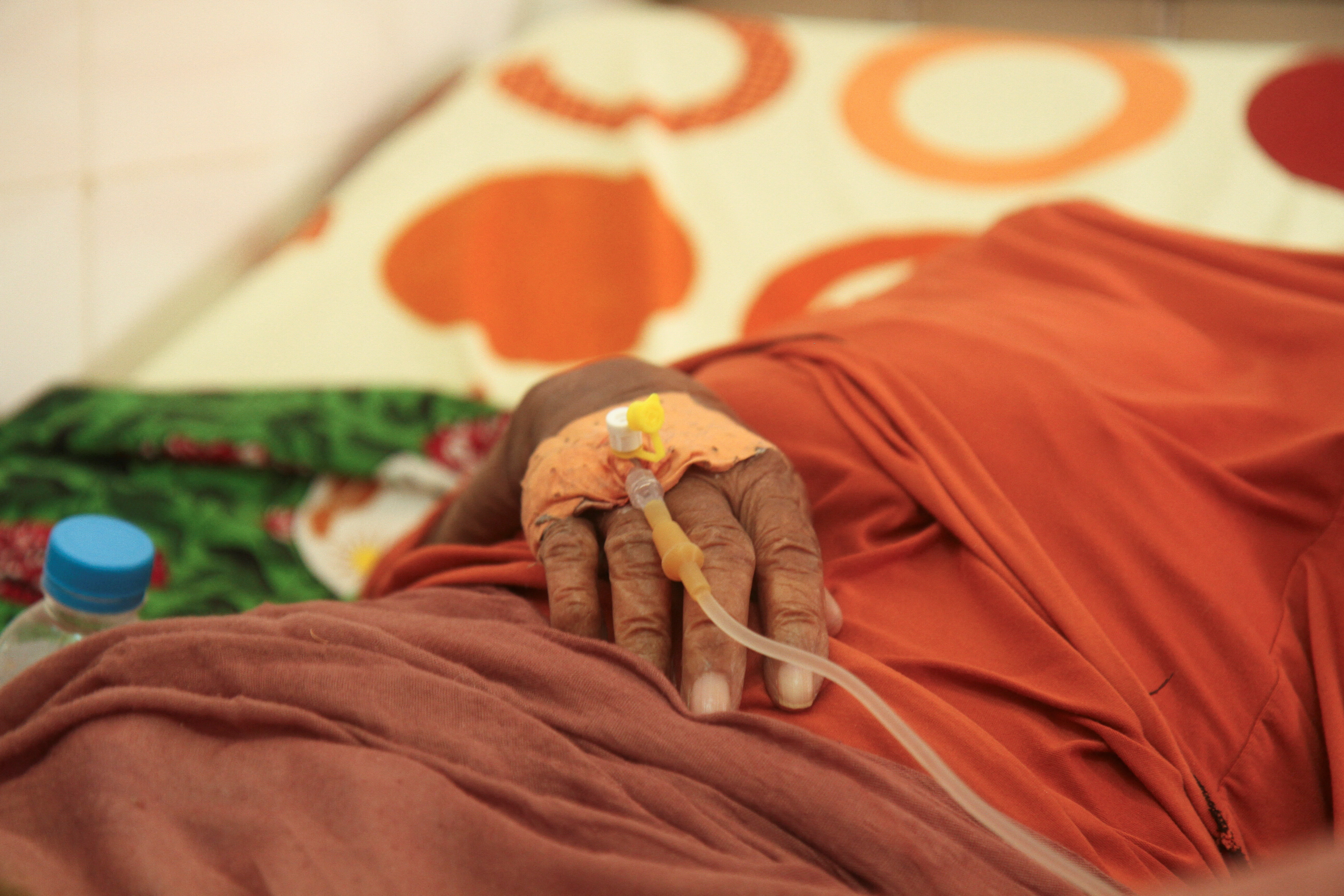COVID-19: What you need to know about the coronavirus pandemic on 24 August
Restaurants and bars are taking unusual steps to protect staff and customers.
Image: REUTERS/Issei Kato
Explore and monitor how COVID-19 is affecting economies, industries and global issues
Stay up to date:
COVID-19
- This daily round-up brings you a selection of the latest news updates on the COVID-19 pandemic, as well as tips and tools to help you stay informed and protected.
- Top stories: global deaths pass 800,000; WHO calls for children 12 and over to wear masks; Seoul introduces new rules.
1. How COVID-19 is affecting the world
Confirmed cases of COVID-19 have now reached more than 23.4 million globally, according to the Johns Hopkins Coronavirus Resource Center. The number of confirmed coronavirus deaths now stands at more than 800,000.
Total confirmed cases of COVID-19 in Brazil have passed 3.6 million, according to official data. More than 114,000 people have died.
Mexico has posted its lowest weekly death toll from coronavirus in over two months. The country reported 3,723 deaths last week, bringing its total to 60,480.
Seoul, the capital of South Korea, has introduced new rules as it attempts to curb a new outbreak of the virus. Face masks are now mandatory in both indoor and outdoor public places for the first time. People have also been asked to avoid leaving home and to cancel any unnecessary trips.
New Zealand has also introduced mandatory face mask-wearing on public transport, as a lockdown in Auckland is extended until at least the end of the week.
Total confirmed cases in India now stand at more than 3.1 million, having passed the 3 million milestone on Sunday.
2. WHO calls for children over 12 to wear masks
The World Health Organization (WHO) has said that children aged 12 and over should wear face masks to help stop the spread of the coronavirus pandemic. Children between six and 11 should do so on a risk-based approach.
In particular, face masks should be worn by older children when a one-metre distance cannot be guaranteed, according to new guidance on the WHO's website in conjunction with UNICEF.
Whether children between six and 11 should wear masks depends on a number of factors, including the intensity of transmission in the area and the child’s ability to use the mask.
What is the World Economic Forum doing to manage emerging risks from COVID-19?
3. 'Hope' to end pandemic in less than two years
Dr Tedros Adhanom Ghebreyesus, WHO Director-General, said on Friday that he hopes the pandemic will last less than two years.
He compared coronavirus to Spanish flu, which "took two years to stop". And, although greater connectivity increases the risk of the virus spreading, technology could help us stop it.
"So we have a disadvantage of globalisation, closeness, connectedness but an advantage of better technology, he said. “So we hope to finish this pandemic (in) less than two years.”
Accept our marketing cookies to access this content.
These cookies are currently disabled in your browser.
Don't miss any update on this topic
Create a free account and access your personalized content collection with our latest publications and analyses.
License and Republishing
World Economic Forum articles may be republished in accordance with the Creative Commons Attribution-NonCommercial-NoDerivatives 4.0 International Public License, and in accordance with our Terms of Use.
The views expressed in this article are those of the author alone and not the World Economic Forum.
Forum Stories newsletter
Bringing you weekly curated insights and analysis on the global issues that matter.
More on Health and Healthcare SystemsSee all
James See
November 7, 2025
Shyam Bishen
November 5, 2025
Naveena Nekkalapudi
October 31, 2025
Mariam Adebayo
October 30, 2025





